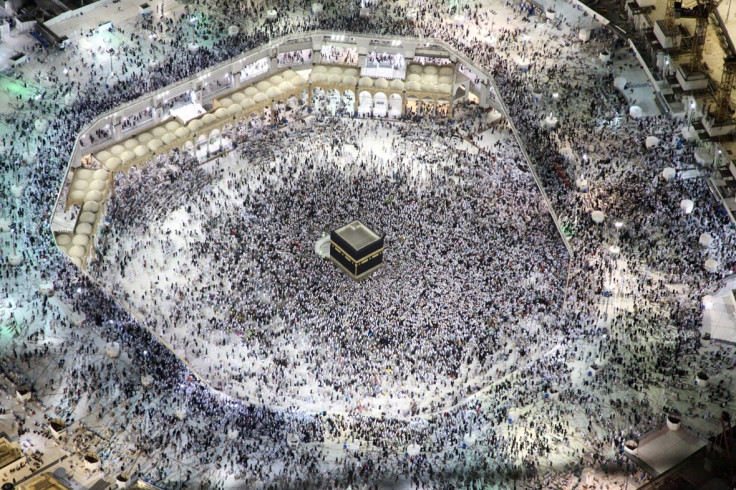Women over 45 to be allowed to travel to Haj without male chaperones, says report
The move is part of a package of social and economic reforms, opposed by clerics, the kingdom plans to introduce.

Women over 45 will be allowed to travel to one of Islam's holiest festival the Haj without a male chaperone - if Riyadh backs controversial new proposals that seek to reform the conservative Middle East kingdom.
Middle-aged women in groups of four or more should be allowed to travel to the Haj, according to a report by a Saudi Arabian government-appointed international panel, led by former Indian government secretary of parliamentary affairs Afzal Amanullah.
Their study was handed into Saudi's Ministry of Minority Affairs at the weekend, who will decide on the measure ahead of the next Haj, in August 2018.
The move is part of a package of cultural and economic reforms spearheaded by King Salman of Saudi Arabia designed to invigorate an economy weighed down by an inefficient public sector and a bloated government payroll.
The panel calls for the relaxation of rules for male Mehram escorts for older women on the pilgrimage to Mecca that all Muslims around the world are asked make at least once in their lifetime to demonstrate their faith. The term Mehram refers to a man a woman who they cannot marry at any time in her life such as a father, brother or a son.
The report said: "The conditions of male Mehram accompanying ladies should be insisted only for ladies below 45 years of age. Ladies above 45 years of age, who wish to go for Haj but who do not have a male Mehram ... should be allowed to travel in groups of four or more."
However, some clerics have slammed the plans calling the proposals "unwarrantable and an intervention in Islam".
The move comes after last month King Salman signed a royal decree allowing women to drive cars in the country for the first time.
Social reforms
Saudi Arabia had been the last country in the world in which women were banned from driving – a fact that was frequently used by critics as proof that female citizens of the kingdom were among the world's most repressed.
This move was also opposed by the country's hardline clerics, who wield a large degree of influence in the oil-rich country.
"I think our leadership understands our society is ready," said the king about the move to get women behind the wheel.
The US state department welcomed the decree as "a great step in the right direction".
The kingdom is also picking its way through the partial flotation of its national oil company Aramco, which is set to be the world's largest share sale.
The firm is valued at $2tn - more than the gross domestic product of Italy or India – and Riyadh is understood to be preparing a sale, lightly to come in 2019, of around 5% of the business to investors that would raise $100bn.
The move is part of an ambitious plan to kick-start the economy by diversifying its reliance away from oil, with aim of doubling the kingdom's gross domestic product and adding six million jobs by 2030.
© Copyright IBTimes 2025. All rights reserved.




















